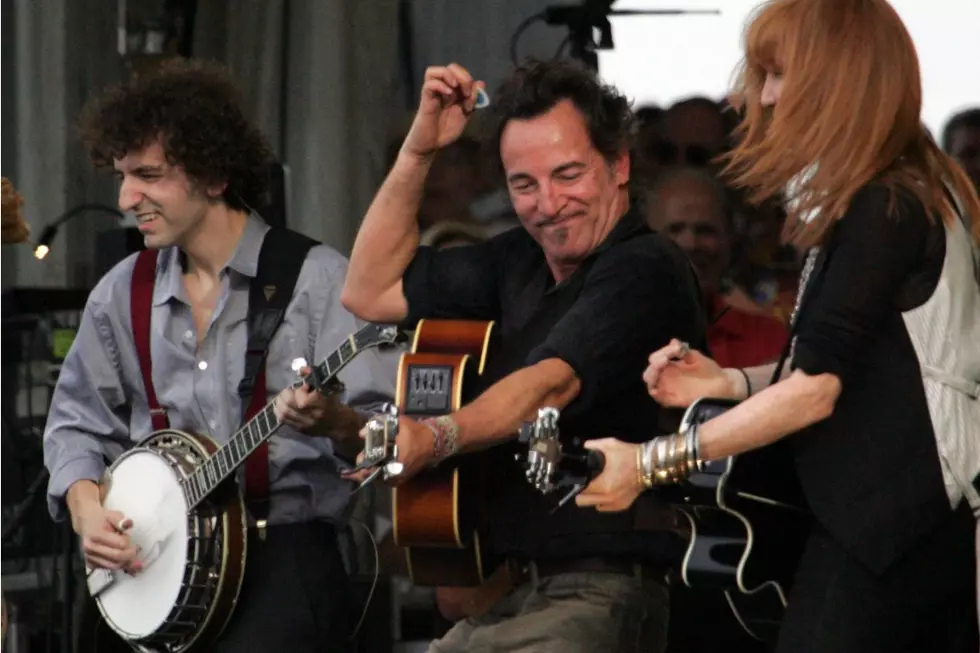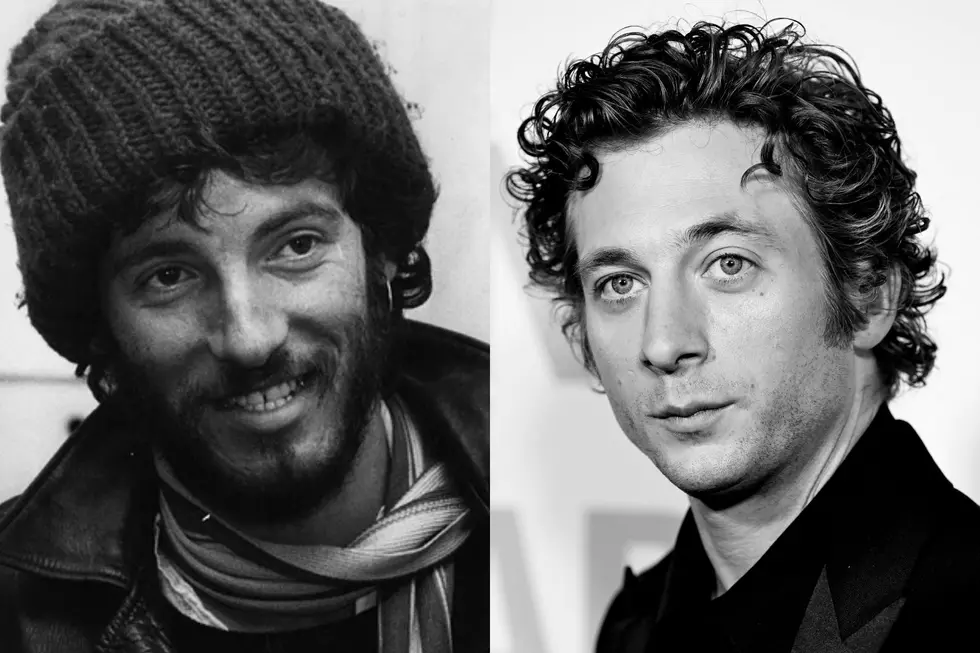
How Bruce Springsteen’s ‘We Shall Overcome’ Opened a New Chapter
For many artists, the release of a covers album signals a lack of new original material — or even worse, a case of writer's block. But for Bruce Springsteen, it opened a new chapter in his career.
For years, Springsteen's music had preached the redemptive power of rock 'n' roll while remaining hemmed in by his own perfectionist tendencies. Although his best albums boasted plenty of power and he'd grown into a legendary live performer, Springsteen's fastidious approach to record-making added months, if not years, to the recording process — and left reams of unreleased material in the vaults. It was hard to argue with the results, but just as difficult not to wish he'd find a way to plug into his concert energy while he was in the studio.
He found it through an unlikely source: the Pete Seeger songbook. Although he only had a passing familiarity with his work, Springsteen caught the Seeger bug while recording "We Shall Overcome" for a tribute to the folk legend in 1997. After delving into the catalog over a period of years, he started entertaining the notion of recording his own versions of some songs made famous through Seeger's releases, and set about building a band for the project.
By the early '00s, Springsteen had established a pattern of alternating between solo project and E Street Band albums, but for what would ultimately evolve into his We Shall Overcome: The Seeger Sessions LP, he took a different approach. Connected with a group of musicians by his E Street violinist Soozie Tyrell, Springsteen put together a big, unwieldy combo that included banjo, upright bass and accordion as well as a horn section (complete with tuba).
Logistically, it could have been one of Springsteen's more difficult recordings, especially considering the relatively low-tech environs — instead of a studio, he ushered the group onto the grounds of his New Jersey farm. But instead of trying to strictly control the band's many moving parts or polish the recordings, he let go and played with an abandon scarcely heard on any of his previous albums.
"It was just playing music," Springsteen told the Athens Banner-Herald. "I didn't have any intention for it. I knew that I enjoyed making this kind of music. ... It was really just purely for the joy of doing it. It was a lot of fun."
"Folk music" and "fun" might not have seemed like an obvious combination for a generation of kids weaned on rock 'n' roll, but Springsteen connected with the songs at their roots. "The songs have lasted 100 years, or hundreds of years, for a reason," he added. "They were really, really well-written pieces of music. They have worlds in them. You just kind of go in — it's a playground. You go in, and you get to play around."
Listen to Bruce Springsteen's 'Old Dan Tucker'
Play around they did. Once he hooked up with the Sessions Band, Springsteen knocked out the album in what amounted to a handful of days' worth of work. We Shall Overcome arrived in stores on April 25, 2006 — almost a year to the day after his previous studio release, the acoustic solo set Devils & Dust. The final track listing spliced together performances tracked during three studio sessions spread apart over a nearly 10-year period, but the end result still sounded seamlessly alive.
"Everybody set up playing, and it's really — it was tremendous," Springsteen told Good Morning America. "It's the joy of playing, but also you get the sound of people not just playing music but making — you're hearing the music being made, you know."
Like the rest of Springsteen's less overtly commercial efforts, We Shall Overcome: The Seeger Sessions wasn't one of his bigger chart hits. The record peaked at No. 3 and went gold — both respectable, particularly given that the contents weren't exactly in step with trends of the day, but not up to his usual platinum standards.
The album's real legacy had nothing to do with sales, however. Aside from shining a much-deserved spotlight on songs that helped form the bedrock of American music, it demonstrated how far Springsteen had come from the performer who'd scuttled songs by the armload.
"I was very interested in shaping what I was about and who what I wanted to be. For every record we released, there was a record I didn't release. I was very cautious and wanted my records to have very strong identities and be about a very particular thing," Springsteen told Billboard in 2009. "I had this huge folk band that I toured and recorded with, and that was a wonderful experience. I toured solo and I loved that, and I have the E Street band at full power. I can do all these things now and really record whatever kind of music comes into my mind. Who you are and what you do is already established, so you don't have those identity concerns that you had back in the day."
We Shall Overcome was ultimately one of the earliest drops in a relative torrent of new Springsteen music. After settling into a pattern of years between new albums, he fired off six records between 2005 and 2014. Instead of fulfilling the typical covers-project function of giving the artist a breather to replenish the songwriting well, it seemed to kick loose a logjam, clearing the way for Bruce Springsteen to reconnect with that redemptive power some of his greatest songs had long celebrated.
And as for Pete Seeger, then nearing the final verse in an incredible life of American song, the We Shall Overcome: The Seeger Sessions record added one last round of public acclaim to a long career spent largely outside the spotlight. Joking that Springsteen had "blown my cover" by putting his name on the album title, Seeger reminded the Guardian that the songs in question belonged to everyone before he found them — and they still remain part of our shared musical fabric. "They're not my songs, they're old songs," he said. "I just happened to sing 'em."
Legends Who Never Had a No. 1 Single
Why Bruce Springsteen Called Killers Collaboration ‘Cathartic’
More From Ultimate Classic Rock









